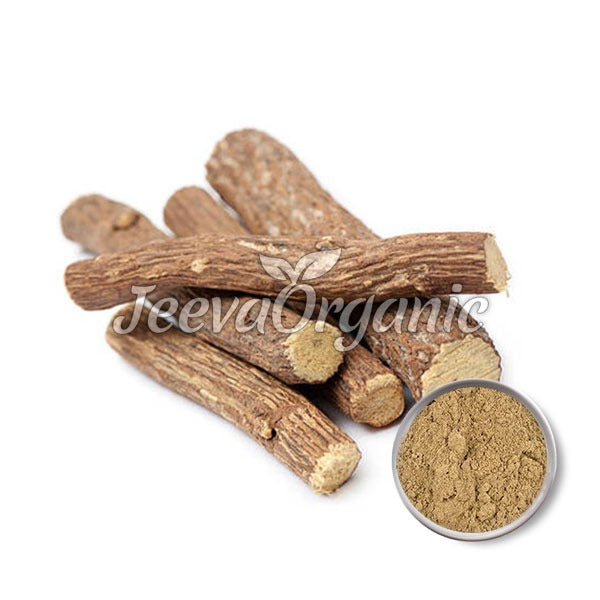What are the health benefits of Licorice Root Extract Powder 10:1?
It is recognized for its anti-inflammatory, soothing, and digestive health benefits, and may support respiratory health as well.
How is the 10:1 extraction ratio achieved?
This ratio is accomplished through a specialized extraction process that concentrates the beneficial compounds of the licorice root while preserving its natural properties.
Is this Licorice Root Extract suitable for vegan and vegetarian products?
Yes, it is derived from plant sources, making it suitable for both vegan and vegetarian formulations.
What forms of dietary supplements can use this Licorice Root Extract?
It can be used in various forms, including capsules, tablets, powders, and liquid extracts.
Are there any allergens present in this extract?
Licorice is generally considered hypoallergenic, but it’s recommended to conduct compatibility tests with specific formulations.
What is the moisture content of Licorice Root Extract Powder 10:1?
The moisture content is typically maintained below 10% to ensure product stability and prevent spoilage.
Does this extract undergo testing for contaminants?
Yes, reputable suppliers test for heavy metals, microbial contamination, and other impurities to ensure safety and compliance.
What is the shelf life of Licorice Root Extract Powder 10:1?
When stored properly in a cool, dry environment, it typically has a shelf life of about two years.
How does the flavor of this extract compare to synthetic sweeteners?
The natural sweetness of Licorice Root Extract offers a healthier alternative to synthetic sweeteners while providing additional health benefits.
Can Licorice Root Extract Powder 10:1 be combined with other herbal ingredients?
Yes, it blends well with various herbal extracts, enhancing flavor and potential therapeutic effects in dietary formulations.
What distinguishes this extract from other Licorice Root Extracts?
The 10:1 extraction ratio allows for a higher concentration of active compounds, making it more potent for specific health applications.
Is bulk packaging available for this extract?
Yes, suppliers typically offer bulk packaging options to meet the needs of businesses and manufacturers.
Is the Licorice Root Extract non-GMO?
Many suppliers provide non-GMO options, aligning with the demand for clean-label ingredients.
What potential side effects should be considered when using this extract?
While generally safe, excessive consumption may lead to elevated blood pressure or other side effects related to high glycyrrhizin levels.


















